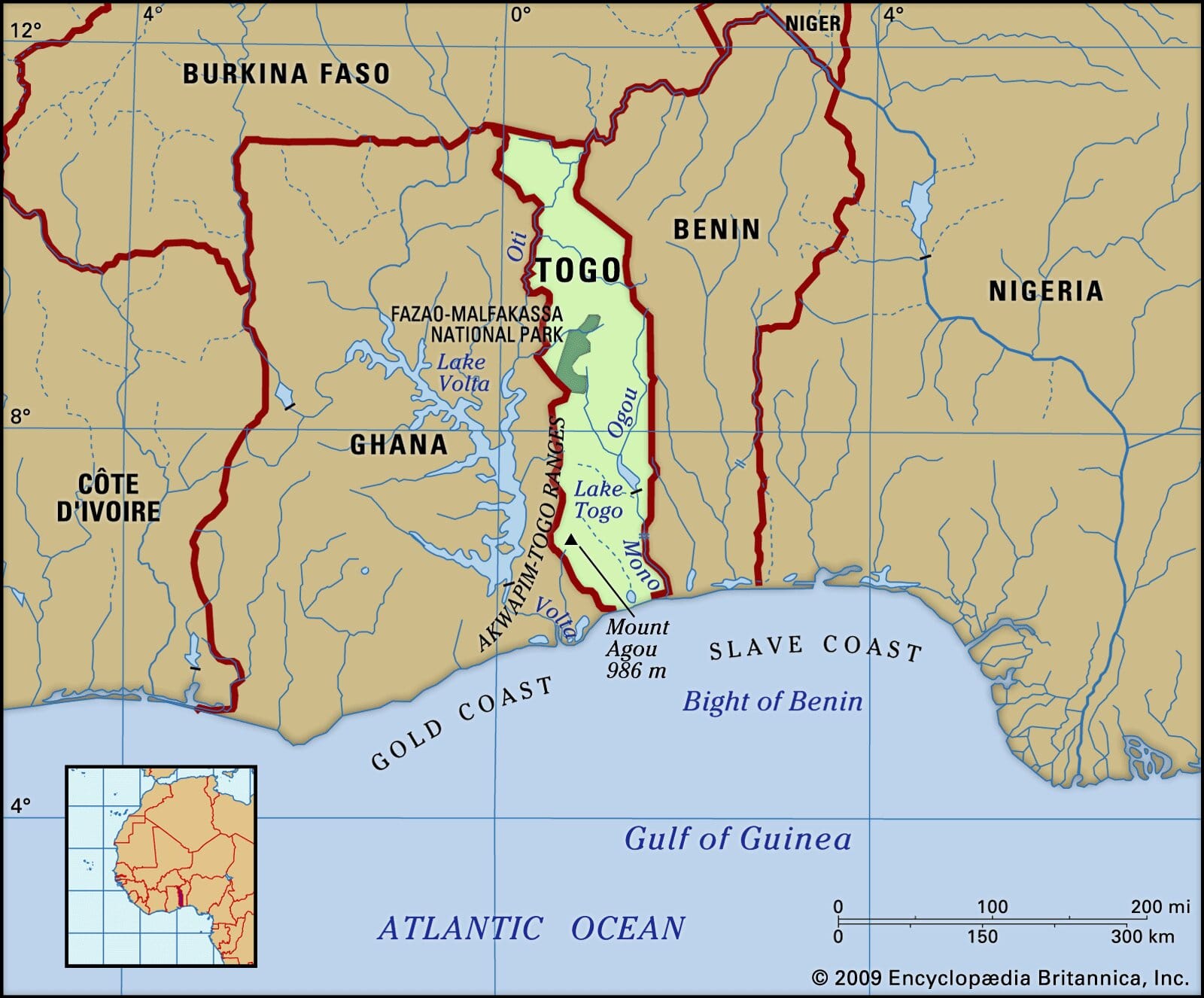International Relations
India-Togo Relations
- 31 Jan 2020
- 4 min read
Why in News
Recently, the Togolese Republic (also known as Togo) and India has come together for the development of about 300 MW Solar Power Projects in Dapaong (Dalwak region) and Mango (Savanes region).
- National Thermal Power Corporation (NTPC) Limited will be the Project Management Consultant (PMC) for the projects.
- Togo is the first International Solar Alliance (ISA) country to avail the services of NTPC.
National Thermal Power Corporation Limited
- It is India’s largest energy conglomerate with roots planted way back in 1975 to accelerate power development in India.
- Its mission is to provide reliable power and related solutions in an economical, efficient and environment-friendly manner, driven by innovation and agility.
- NTPC became a Maharatna company in May 2010.
- It is located in New Delhi.
- It has an installed power capacity of more than 58,000 MW which include 870 MW of Solar Projects and 1062 MW under development.
Key Points
- NTPC had submitted a proposal to the (ISA) for giving Project Management Consultancy to the member countries for the implementation of Solar Projects.
- The proposal was put on Swiss challenge on the ISA website and subsequently submitted to the ISA Finance Committee. It was cleared in 2nd ISA Assembly held in October 2019.
Swiss Challenge
- Swiss challenge method is a method of bidding, often used in public projects, in which an interested party initiates a proposal for a contract or bid for a project.
- The government then puts the details of the project out in the public and invites proposals from others interested in executing it.
- On the receipt of these bids, the original proposer gets an opportunity to match the best bid. In case, the original proposer fails to match the bid, the project is awarded to the proposer of the best bid.
Togo
- It is a country in West Africa and extends south to the Gulf of Guinea and is bordered on the north by Burkina Faso, Benin to the east, and Ghana on the west.
- Togo’s capital is Lomé, located in the Gulf of Guinea and is the largest city and port of the country.
- Togo is a sub-Saharan nation, with a good growing climate that supports its dependence on agriculture.
- The economy rests largely on agricultural products such as coffee, cocoa beans, and peanuts (groundnuts).
- It has extensive phosphate reserves and is one of the world’s largest phosphate producers.
- Its official language is French and many other languages of the Gbe family are spoken in Togo.
- History:
- Togo was initially populated by various tribes and later became a centre for the slave trade known as “The Slave Coast” in the 16th century.
- It was later a German colony until World War I when it was divided by England and France.
- In 1914 Togoland became Togo. British Togoland eventually became part of Ghana and French Togoland.
- Togo gained independence in 1960.
- Memberships:
- It is a member of the United Nations, the Organisation of the Islamic Conference, the African Union, the International Solar Alliance among others.
- Togo has set an ambitious plan to achieve universal electricity access by 2030 with focus on capacity addition in Solar Power generation.





